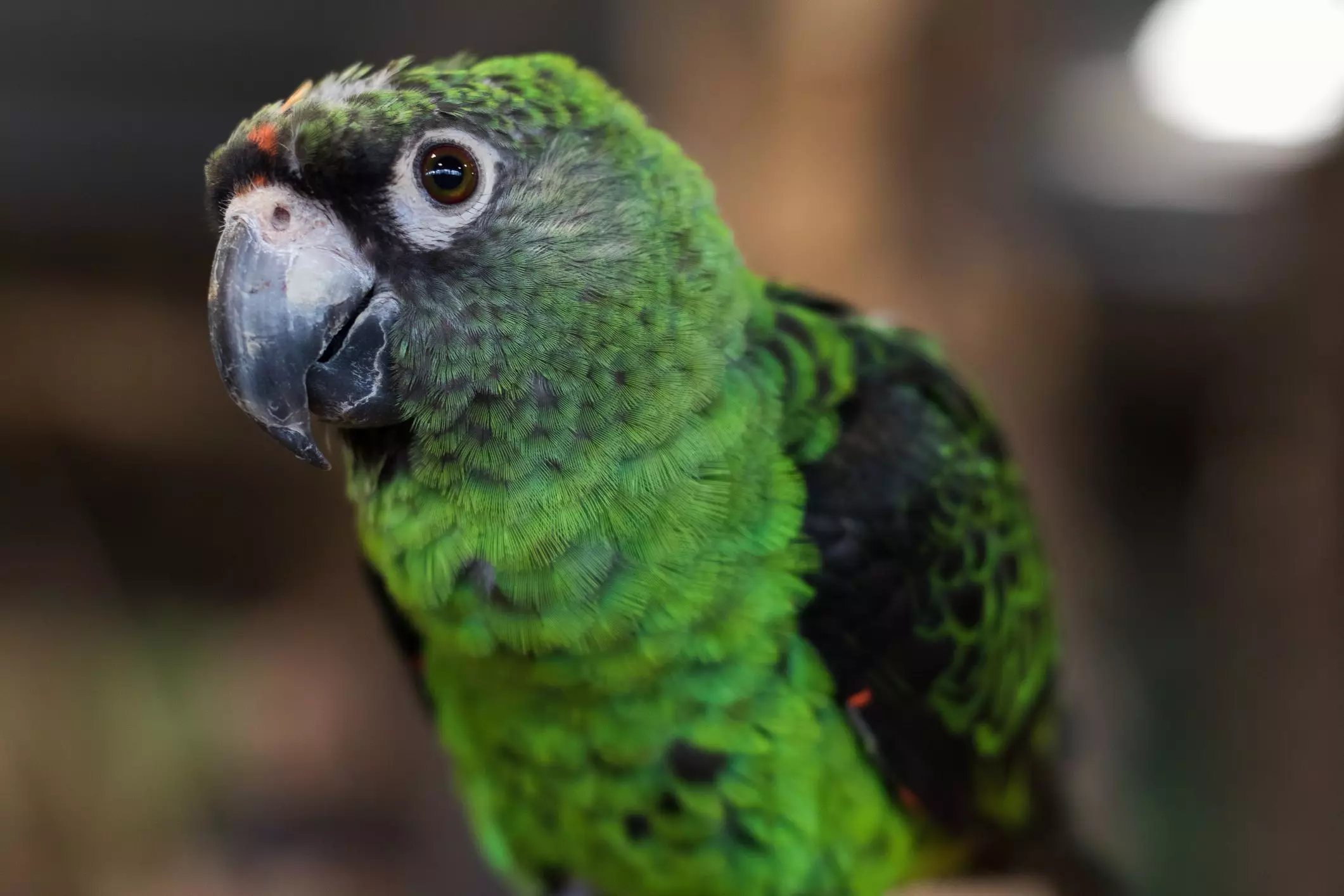Jardine parrots, often overshadowed by their larger Amazon cousins, possess distinct traits that set them apart in both appearance and behavior. Belonging to the genus Poicephalus and scientifically named Poicephalus gulielmi, these captivating birds not only charm with their vibrant plumage but also enchant with their engaging personalities. Although they are less prevalent in the pet trade compared to other parrots, a deeper understanding of their care requirements and unique characteristics can lead to a fulfilling companionship for both the bird and its owner.
Reaching an impressive size of 10-11 inches in length and weighing between 7-8 ounces, Jardine parrots are compact yet robust creatures. Their striking green plumage, paired with the brilliant reddish-orange hues adorning their heads, creates a visual appeal that many avian enthusiasts find irresistible. Native to regions within Africa—including the Democratic Republic of Congo, Ghana, Liberia, and Cameroon—these parrots thrive in lowland rainforests and coffee plantations, often found nesting in tree cavities in small groups.
The bird is named after Sir William Jardine, a naturalist who first documented the species in 1849. The term “gulielmi” in their scientific nomenclature aptly pays tribute to Jardine’s legacy, translating to “William’s.”
Behavioral Traits and Personality
Affectionate yet playful, Jardine parrots boast a wonderful disposition that makes them endearing pets. Unlike some of their Amazon parrot relatives, they are less prone to aggressive behaviors; however, juvenile Jardines can display a tendency to bite as they navigate their social behaviors. As they mature, they typically become more gentle and loving companions.
Intelligence is one of the most notable features of Jardine parrots; these birds have a remarkable ability to entertain themselves with toys and can even mimic the sounds and phrases they hear in their environment. Their vocal abilities, combined with a general preference for fewer vocal outbursts, make them more manageable companions for those living in shared spaces or apartments.
Creating an optimal living environment for a Jardine parrot is crucial to ensure their well-being. While they aren’t as large as some other parrots, they still require ample space to stretch their wings and engage in physical activity. A sizeable cage is a must, but it is essential to provide out-of-cage time for play and exercise. An aviary setting would be ideal, but even a large cage accompanied by supervised exploration around the house can suffice.
Jardines can be destructive if they become bored. Therefore, it is important to provide a variety of toys and safe objects to chew on, including wooden blocks and foraging toys. Aiding their beak health can also involve offering items like almonds for cracking, which can keep them engaged while fulfilling their innate chewing instincts.
Like many bird species, Jardine parrots are prone to specific health issues that owners should be aware of. Respiratory problems often arise from exposure to drafts or unsanitary environments. It’s critical to maintain stable temperatures and ensure that their habitats are clean and free from mold and fungal infections like aspergillosis.
A balanced diet is essential; high-quality pellets should form the basis of their food, supplemented by fresh fruits, vegetables, and limited seeds to avoid obesity. Care should be taken not to overindulge in fatty seeds or treats, as these can lead to health complications over time.
The Jardine parrot faces challenges in the wild primarily due to habitat loss and the illegal pet trade. For prospective pet owners, it’s vital to seek out captive-bred Jardine parrots from reputable breeders or rescues to avoid contributing to the decline of wild populations. Thankfully, these parrots breed consistently in captivity, making it easier for bird lovers to find them as pets.
Local avian veterinarians and specialized pet stores often have resources or recommendations for potential pet owners looking to adopt these lovely birds.
Jardine parrots, often an overlooked choice for pet bird enthusiasts, bring a delightful combination of intelligence, affection, and playfulness that can enrich any home. Understanding their unique needs and characteristics is key to fostering a rewarding relationship with these beautiful birds. By providing the right environment, proper care, and plenty of engagement, owners can ensure that Jardine parrots thrive both physically and emotionally, making them cherished additions to any family.

